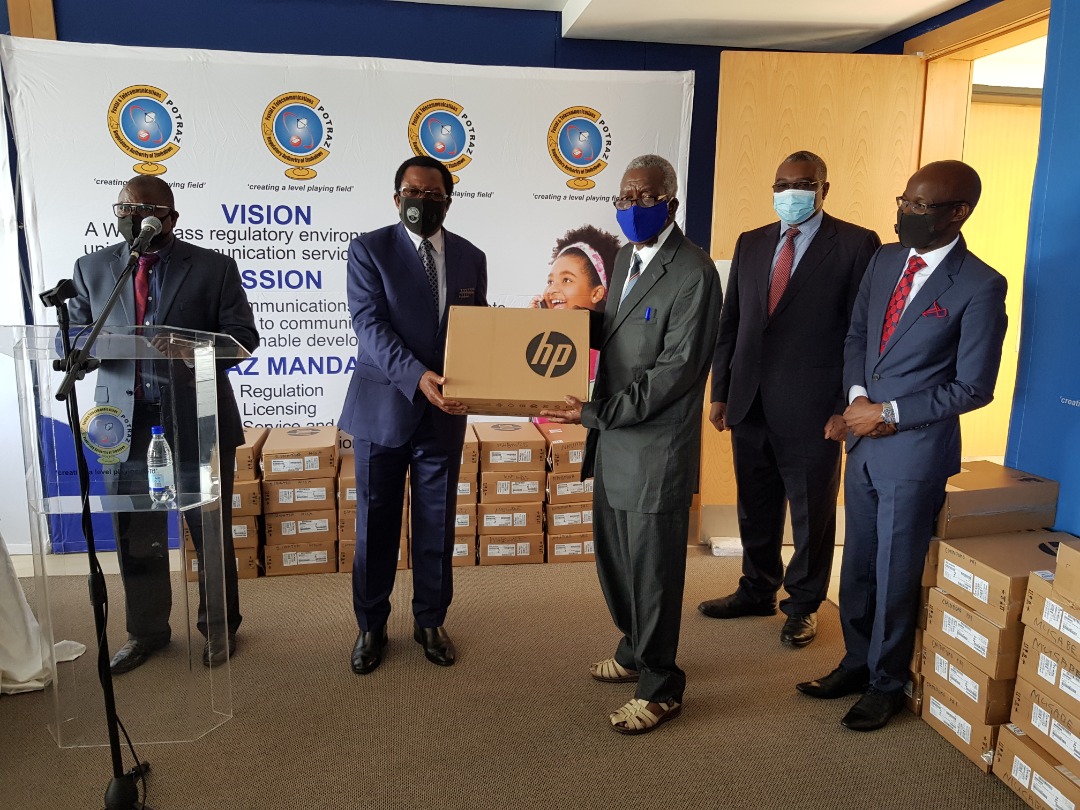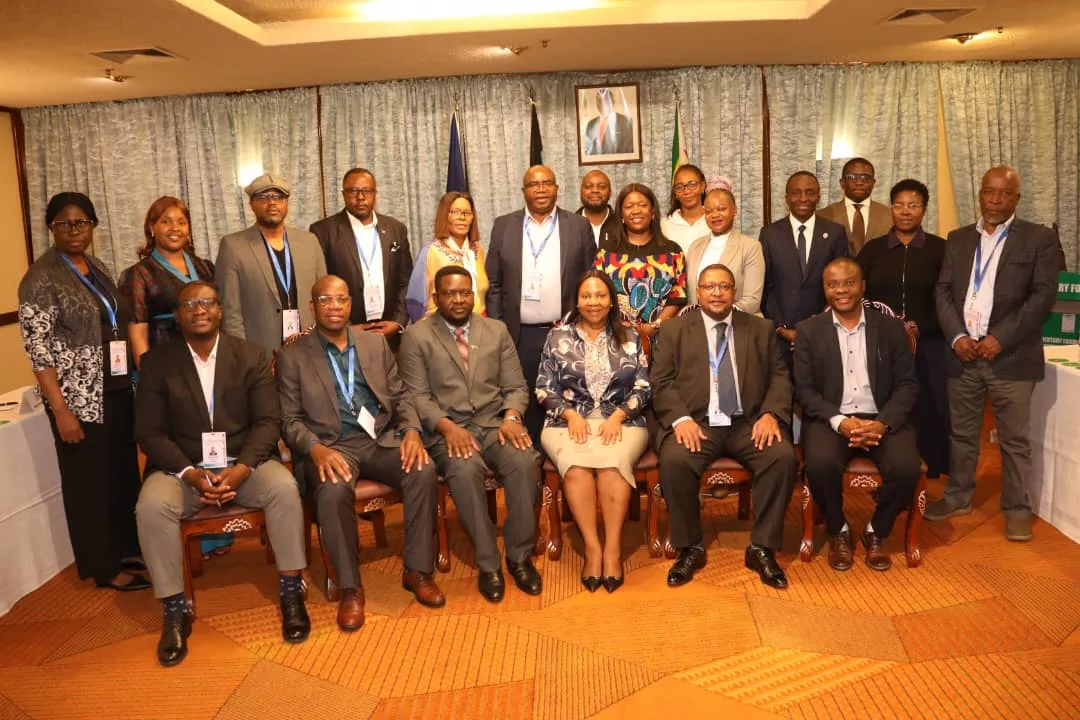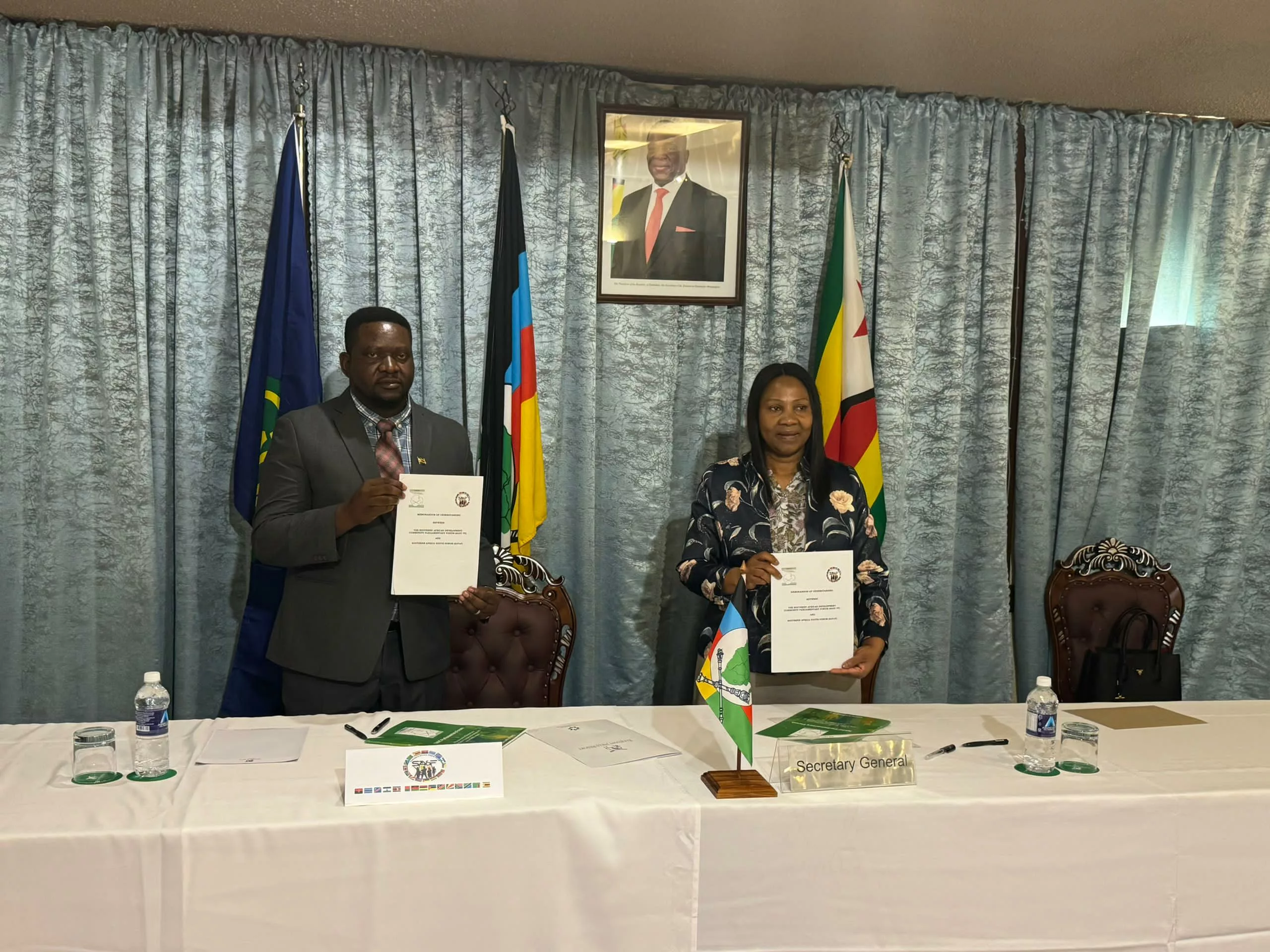The Postal and Telecommunication Regulatory Authority of Zimbabwe (POTRAZ) seeks to advance inclusivity in the access and use of information communication technologies (ICTs) by all including persons with disabilities (PWDs).
This was revealed by Dr. Gift Machengete, the POTRAZ Director-General, on the the occasion of the handover of ICT equipment to schools and institutions that cater for people with disabilities at the regulator’s headquarters in Harare yesterday.
“I find it a pleasure and honour to be officiating at this hand-over ceremony of ICT equipment to institutions catering for persons -with disabilities, as we seek to advance inclusivity in the access and use of ICTs. Such inclusivity will certainly breed progress and development, not only for the disabled community but for the country at large owing to enhanced participation in the digital economy by all,” Dr. Machengete said.
POTRAZ, through the Universal Services Fund, handed over 180 laptops to various centres as follows;
| Name of Institution | Number of laptops |
| Ingutsheni Central Hospital | 20 |
| Chengetai Special School | 20 |
| Nzeve Deaf Centre | 20 |
| Henry Murray | 20 |
| University of Zimbabwe | 50 |
| Midlands State University | 50 |
It is estimated that more than one billion people, which is about 15% of the world’s total population, have one form of disability or the other, whether physical or cognitive. A high percentage of these people live in developing countries, including Zimbabwe. More so, a large number of people with disabilities live in marginalised rural communities where they are further disfranchised by the lack of telecommunication infrastructure to enable them to also participate in the digital economy.
To ensure that “no one is left behind” in the digital world, ICT access and use is recognised as a key priority in several global commitments related to inclusiveness such as:
- the Convention on the Rights of Persons with Disabilities (CRPD);
- the Transforming the World 2030 Agenda;
- the Sustainable Development Goals (SDGs); and, more recently
- the UN Disability Inclusion Strategy.
Furthermore, Strategic Goal number 2 of the ITU focuses on “inclusiveness” and its Target 2.9 – calls on ITU Members to ensure that “By 2023, enabling environments ensuring accessible telecommunications/ICTs for persons with disabilities should be established in all countries”.
Dr. Machengete sad this is not the first time POTRAZ has supported institutions catering for persons with disabilities. So far the following institutions have benefitted from the on-going program aimed at advancing inclusive ICT access and use;
- Emerald Hill School for the deaf, which received 16 Desktops and an Audio Verifit Scan.
- St Giles, which received a desktop computer, a printer and a projector.
- Harare and Bulawayo City Libraries, which received 15 laptops each.
- Dorothy Duncan – 10 laptops.
- Mckertuarn Primary School, which got 13 laptops and fusion assistive software for 13 users
- Karoi High School – 13 laptops and fusion assistive software for 13 users
- National League for the Blind, which received 20 laptops and fusion assistive software for 20 users
- Jairos Jiri received 35 laptops, Internet connectivity for 10 sites and fusion assistive software for 35 users
- Copota School for the Blind received 20 computers and fusion assistive software for 20 users
- And finally, Ruwa Rehabilitation Centre received 20 desktop computers.
On the same occasion, POTRAZ distributed computers to schools under its e-learning program.
“The schools that will receive computers today have each received 5 computers from POTRAZ in the past out of a target distribution of 10 computers each. Therefore each school will receive the outstanding five laptops today.
“With the advent of COVID – 19, e-learning is no longer a luxury but a necessity. Online learning is now the new normal and as such our children in the rural areas should also not be left behind in this new phenomena. These computers will therefore go a long way in mitigating the effects of COVID – 19,” Dr. Machengete added.
Furthermore, the Authority’s e-learning program which is also being rolled out through the Universal Service Fund, is a very important program especially now when the world has gone digital. The rapid technological transformations have given rise to the digital economy which is characterised by artificial intelligence, robotics, big data and virtual reality. This demands that children have access and use of the Internet if they are to compete and survive in this world.
The Organisation for Economic Co-operation and Development (OECD) predicts that 65% of today’s children will have jobs which are yet to be invented.
Dr. Machengete said the skills required for these jobs will only be acquired through use of the Internet, hence, for today’s children to compete in the job market of tomorrow, they need access and use of the Internet, today.
The donation also targeted rural schools and a representative of the beneficairy school in Gokwe said the gesture by POTRAZ will go a long way in promoting e-learning in rural areas.
He said it will also expedite the attainment of Vision 2030 by the government.






